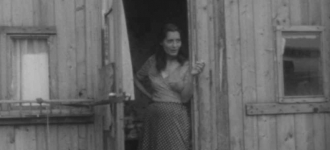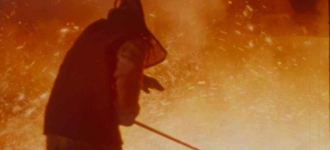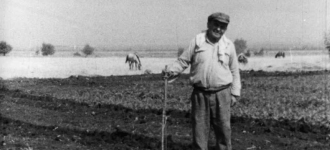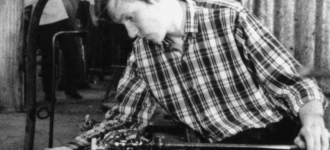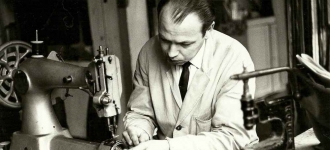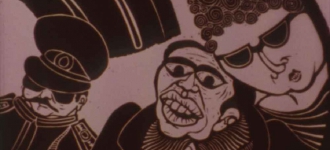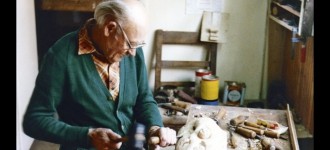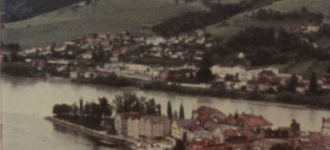Peter Nestler (1937, Freiburg im Breisgau) tells stories of oppression, war, production, and resistance through rivers, materials, and objects. He sees the correlation of aesthetics and history, and how single events are part of a larger process. The characters in his films not only represent their own fate, but that of the course of history. His principal collaborator – his wife, Zsóka Nestler (born Zsófia Gizella Somlai, in Budapest, in 1944) – was a Hungarian psychotherapist who also did sound recording, prepared interviews, and worked with the children that appeared in their films. Heavily influenced by Hungarian culture, together they shot several films in Hungary, such as Uppför Donau (1969) and Zeit (1992). These two works clearly show Nestler’s main focuses: the Danube, the cornerstone of modern European industry, as a symbol of supranational unity; folklore as a vehicle for the memory and political consciousness of the peasantry; histories of children; and the politics of education.
His first film was completed in 1962, while his most recent was made last year. One of his colleagues aptly described Nestler’s outlook: “Basically, he is in the process of making a great, long movie, like a narrator weaving his story into eternity. Each film represents only chapters or excerpts of a life achievement.” Nestler has been developing his format for sixty years, and his journeys and the myriad of situations he explores, seem like a single line of thought woven throughout them all. His analyses cross countries, dictatorships, and forms of exploitation, but are bound together by his internationalism. His ambitions seem to align with those of "the Long Sixties" (the political film movement of that era, in a broad sense), as his films connect to the struggles of some nations, as well as to the film form, documentation, political participation, and theory and practice of resistance. Nestler even left his home country and moved to Sweden in 1965, when he was unable to premiere Von Griechenland, his film foreshadowing the Greek military dictatorship, in the FRG.
Nestler can be placed in a variety of historical and intellectual film contexts ranging from the radical agitations of the 1960s and 1970s (like the films of Groupe Dziga Vertov, or the early works of Chris Marker), through the emancipation of television (attempted by Nestler in Sweden, Želimir Žilnik in Yugoslavia, Alan Clarke in the UK), to the West German Filmkritik magazine, to which filmmakers and critics, such as Harun Farocki and Jean-Marie Straub, contributed. But it was the German New Cinema, the intellectual home of the authors of critical theory, who provided the most important workshop for Nestler's reception.
Over the past two decades, festivals around the world have rediscovered Peter Nestler. At the twentieth edition of Verzió, we will celebrate his life achievements in Budapest, one of the most important scenes in his artistic and personal life. We are screening eight films in three loosely-connected, but interlinking blocks from the person Jean-Marie Straub called the most important figure in post-war German cinema; “An irreconcilable documentary filmmaker."
Anna Babos, Simon Petri-Lukács
Curators
